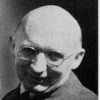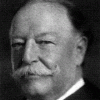Tell us, where slopes the cliff, to make a way
That man may climb? For they who know its worth
Fret most when time is wasted in delay.[Ditene dove la montagna giace,
sì che possibil sia l’andare in suso;
ché perder tempo a chi più sa più spiace.]Dante Alighieri (1265-1321) Italian poet
The Divine Comedy [Divina Commedia], Book 2 “Purgatorio,” Canto 3, l. 76ff (3.76-78) (1314) [tr. Sayers (1955)]
(Source)
Virgil inquiring of the "Contumacious" (the rebellious and excommunicates who only sought the forgiveness of God at the end of their lives) the best route to climb the Mountain of Purgatory. He actually gets in a dig at them, as they are themselves delayed ascending the Mountain because of their delayed turn to Salvation.
(Source (Italian)). Alternate translations:
Shew, where with easier slope these mountains bend,
The MENTAL PROGRESS ill can bear a stand.
[tr. Boyd (1802), st. 15]
Instruct us where the mountain low declines,
So that attempt to mount it be not vain.
For who knows most, him loss of time most grieves.
[tr. Cary (1814)]
Tell us in what direction mountain lies --
If it be possible to climb its side?
Lost time the wisest find it worst to bide.
[tr. Bannerman (1850)]
Tell us upon what side the mountain slopes,
So that the going up be possible,
For to lose time irks him most who most knows.
[tr. Longfellow (1867)]
Tell us where the mountain falls, so that it is possible to go upward; for loss of time displeases most who most knows.
[tr. Butler (1885)]
Tell us where easiest slopes the precipice.
So that we there our upward path may hold:
Him who knows most time lost doth most displease.
[tr. Minchin (1885)]
Tell us, where the mountain lies so that the going up is possible; for to lose time is most displeasing to him who knows most.
[tr. Norton (1892)]
Tell us where the mountain slopes, so that it may be possible to go upward; for time lost irks him who knowest most.
[tr. Okey (1901)]
Tell us where the mountain slopes so that it is possible to go up; for loss of time most grieves him that knows best.
[tr. Sinclair (1939)]
Tell us where slopes the mountain by degrees
Such, that it may be possible to ascend;
For him who knows most lost hours most displease.
[tr. Binyon (1943)]
Tell us which way
leads to some slope by which we two may climb.
Who best knows time is most grieved by delay.
[tr. Ciardi (1961)]
Tell us where the mountain slopes so that it is possible to go up, for time lost irks him most who knows most.
[tr. Singleton (1973)]
Tell us where the mountain slopes enough
for us to start our climb: the more one learns,
the more one comes to hate the waste of time.
[tr. Musa (1981)]
Tell us where the mountain-side slopes so
That it is possible to go up higher;
For those who know most, dislike most to dawdle.
[tr. Sisson (1981)]
Please tell
us where the slope inclines and can be climbed;
for he who best discerns the worth of time
is most distressed whenever time is lost.
[tr. Mandelbaum (1982)]
Tell us where the mountain slopes so that it is possible to climb it; for losing time displeases most those who know most.
[tr. Durling (2003)]
Tell us where the mountain slopes allow us to go upwards, since lost time troubles those most, who know most.
[tr. Kline (2002)]
Please tell us where the mountain angles down
to make it possible for us to climb.
For those who know the most, most hate time lost.
[tr. Kirkpatrick (2007)]
Tell us where the mountain rises gently
so that we may begin the long ascent.
The more we know, the more we hate time's waste.
[tr. Hollander/Hollander (2007)]
Tell us where they bend, these mountain slopes,
So feet may find their way. A man of knowledge
Regrets the loss of time far more than most.
[tr. Raffel (2010)]
Quotations about:
delay
Note not all quotations have been tagged, so Search may find additional quotes on this topic.
A resolution to avoid an evil is seldom framed till the evil is so far advanced as to make avoidance impossible.
Somewhere we must come to see that human progress never rolls in on the wheels of inevitability. It comes through the tireless efforts and the persistent work of dedicated individuals who are willing to be coworkers with God. And without this hard work, time itself becomes an ally of the primitive forces of social stagnation. So we must have time and realize that the time is always right to do right.
Martin Luther King, Jr. (1929-1968) American clergyman, civil rights leader, social activist, preacher
“Remaining Awake Through a Great Revolution,” National Cathedral, Washington, DC (31 Mar 1968)
(Source)
JULIET: Good night, good night. Parting is such sweet sorrow
That I shall say “Good night” till it be morrow.William Shakespeare (1564-1616) English dramatist and poet
Romeo and Juliet, Act 2, sc. 2, l. 199ff (2.2.199-200) (c. 1594)
(Source)
Never put off till tomorrow what you can do day after tomorrow just as well.
Mark Twain (1835-1910) American writer [pseud. of Samuel Clemens]
“Memoranda: The Late Benjamin Franklin,” epigraph, The Galaxy Magazine (Jul 1870)
(Source)
Offered as a faux Franklin maxim, in an essay where Twain mocked veneration of Franklin's biography and supposedly original aphorisms.
More background on this quotation: Never Put Off Till Tomorrow What You Can Do The Day After Tomorrow Just As Well – Quote Investigator.
Don’t fool yourself that important things can be put off till tomorrow; they can be put off forever, or not at all.
Mignon McLaughlin (1913-1983) American journalist and author
The Neurotic’s Notebook, ch. 10 (1963)
(Source)
The best you can do is grant my demand,
Your second-best course to refuse it off-hand;
I welcome assent and denial excuse —
But, Cinna, you neither consent nor refuse.[Primum est ut praestes, si quid te, Cinna, rogabo;
illud deinde sequens, ut cito, Cinna, neges.
Diligo praestantem; no odi, Cinna, negantem:
sed tu nec praestas nec cito, Cinna, negas.]Martial (AD c.39-c.103) Spanish Roman poet, satirist, epigrammatist [Marcus Valerius Martialis]
Epigrams [Epigrammata], Book 7, epigram 43 (7.43) (AD 92) [tr. Pott & Wright (1921)]
(Source)
Source (Latin). Alternate translations:
My iust demands soone graunt or soone deny,
Th' one friendship showes, and th' other curtesie.
But who nor soon doth graunt, nor soone say noe,
Doth not true friendship, nor good manners know.
[tr. Davison (1602)]
The first love, Cinna, is to grant what I
Request; the second quickly to deny.
I love the one, the other hate not I;
But thou nor grant'st, nor quickly dost deny.
[tr. May (1629), 7.42]
The kindest thing of all is to comply;
The next kind thing is quickly to deny:
I love performance; nor denial hate:
Your "Shall I, Shall I?" is the cursed state.
[tr. Hay (1755)]
To grant must doubtless be the primal boon:
The next, my Cinna, to deny me soon.
I love the former, nor the latter hate:
But thou not grantest, and deniest late.
[tr. Elphinston (1782), Book 5, ep. 53]
The greatest favour that you can do me, Cinna, if I ask anything of you, is to give it me; the next, Cinna, to refuse it at once. I love one who gives, Cinna; I do not hate one who refuses; but you, Cinna, neither give nor refuse.
[tr. Bohn's Classical (1859)]
Cinna, grant me my request:
(I warmly hope you'll choose to!)
Or do what I think second best,
In haste refuse to.
Patrons I esteem, nor hate
The man I can't bamboozle:
But you give naught, yet make me wait
A slow refusal.
[tr. Nixon (1911)]
The first thing is that you should hand it over if I ask anything of you, Cinna; the next thing after that, Cinna, is that you should refuse quickly. I like a man who hands over; I do not hate, Cinna, a man who refuses; but you neither hand over, nor do you, Cinna, quickly refuse.
[tr. Ker (1919)]
'Tis best to grant me, Cinna, what I crave;
And next best, Cinna, is refusal straight.
Givers I like: refusal I can brave;
But you don't give -- you only hesitate!
[tr. Duff (1929)]
Cinna, the best thing would be if you lent
Me anything I asked for. The next best
Would be for you to say no then and there.
I like good givers, and I don't resent
A straight refusal of a small request.
It's ditherers like you that I can't bear.
[tr. Michie (1972)]
Best is that you give me anything I ask, Cinna; next best, Cinna, is that you refuse promptly. I like a man who gives; I don't hate a man who refuses, Cinna. But you, Cinna, neither give nor promptly refuse.
[tr. Shackleton Bailey (1993)]
Cinna, to give me what I ask is best;
next best is to refuse without delay.
I love a giver, don't resent refusers.
You neither give nor tell me no straightway.
[tr. McLean (2014)]
We are all at a wonderful ball where the champagne sparkles in every glass and soft laughter falls upon the summer air. We know, by the rules, that at some moment the Black Horsemen will come shattering through the great terrace doors, wreaking vengeance and scattering the survivors. Those who leave early are saved, but the ball is so splendid no one wants to leave while there is still time, so that everyone keeps asking, “What time is it? What time is it?” but none of the clocks have any hands.
George Goodman (1930-2014) American author, economics broadcast commentator [pseud. Adam Smith]
Supermoney, Part 3, ch. 2 (1972)
(Source)
An explanation he gave to a "mass-circulation magazine" about the stock bubble in 1968. He later incorporated a variation of the story in a republication of his 1968 The Money Game:
We are all at a wonderful party, and by the rules of the game we know that at some point in time the Black Horsemen will burst through the great terrace doors to cut down the revelers; those who leave early may be saved, but the music and wines are so seductive that we do not want to leave, but we do ask, "What time is it? What time is it?" Only none of the clocks have any hands.
WATCHMAN:
Sir, I am here. I can’t say I am out of breath.
I have not exactly been “running on light feet.”
I halted many times along the road so I could think,
And I almost turned around and marched right back.
My mind kept talking to me. It said, “You poor guy,
Why are you going there? You’ll just get your ass kicked.”
Then it said, “Are you stopping again, you damn fool?
If Creon hears this from another man, he’ll give you hell.”
Well, I turned this idea up and down like that,
And I hurried along, real slow. Made a short trip long.[Φύλαξ:
ἄναξ, ἐρῶ μὲν οὐχ ὅπως τάχους ὕπο
δύσπνους ἱκάνω κοῦφον ἐξάρας πόδα.
πολλὰς γὰρ ἔσχον φροντίδων ἐπιστάσεις,
ὁδοῖς κυκλῶν ἐμαυτὸν εἰς ἀναστροφήν:
ψυχὴ γὰρ ηὔδα πολλά μοι μυθουμένη:
τάλας, τί χωρεῖς οἷ μολὼν δώσεις δίκην;
τλήμων, μενεῖς αὖ; κεἰ τάδ᾽ εἴσεται Κρέων
ἄλλου παρ᾽ ἀνδρός; πῶς σὺ δῆτ᾽ οὐκ ἀλγύνει;
τοιαῦθ᾽ ἑλίσσων ἤνυτον σχολῇ βραδύς.]Sophocles (496-406 BC) Greek tragic playwright
Antigone, l. 223ff (441 BC) [tr. Woodruff (2001)]
(Source)
Original Greek. Alternate translations:
SENTINEL:
My liege, I cannot say that from very haste I come panting for breath, having stept out with nimble paces. Troth: I have had many half-way houses of cogitation, wheeling about after every fresh start as though I would return. In fact, my soul often addressed me with some such tale as this: Why goest, simpleton, where to be come is to be punished?" then again: "What! wilt not away, poor wretch? and if Kreon shall learn these tidings from some one else, how then wilt thou escape the penalty?" While thus my mind revolved, the speed I made was tardy in its swiftness: and so a short road is made long.
[tr. Donaldson (1848)]
GUARD:
My lord, I will not make pretense to pant
And puff as some light-footed messenger.
In sooth my soul beneath its pack of thought
Made many a halt and turned and turned again;
For conscience plied her spur and curb by turns.
"Why hurry headlong to thy fate, poor fool?"
She whispered. Then again, "If Creon learn
This from another, thou wilt rue it worse."
Thus leisurely I hastened on my road;
Much thought extends a furlong to a league.
[tr. Storr (1859)]
WATCHMAN:
My lord, I am out of breath, but not with speed.
I will not say my foot was fleet. My thoughts
Cried halt unto me ever as I came
And wheeled me to return. My mind discoursed
Most volubly within my breast, and said--
Fond wretch! why go where thou wilt find thy bane?
Unhappy wight! say, wilt thou bide aloof?
Then if the king shall hear this from another,
How shalt thou 'scape for 't? Winding thus about
I hasted, but I could not speed, and so
Made a long journey of a little way.
[tr. Campbell (1873)]
GUARD:
My king, I will not say that I arrive breathless because of speed, or from the action of a swift foot. For often I brought myself to a stop because of my thoughts, and wheeled round in my path to return. My mind was telling me many things: “Fool, why do you go to where your arrival will mean your punishment?” “Idiot, are you dallying again? If Creon learns it from another, must you not suffer for it?” So debating, I made my way unhurriedly, slow, and thus a short road was made long.
[tr. Jebb (1891)]
MESSENGER:
O King, I cannot boast that, hither sent,
I came with speed, for oft my troubled thoughts
Have driven me back; oft to myself I said,
Why dost thou seek destruction?
With doubts like these oppressed, slowly I came,
And the short way seemed like a tedious journey.
[tr. Werner (1892)]
GUARD:
My liege, I will not say that I come breathless from speed, or that I have plied a nimble foot; for often did my thoughts make me pause, and wheel round in my path, to return. My mind was holding large discourse with me; "Fool, why goest thou to thy certain doom?" "Wretch, tarrying again? And if Creon hears this from another, must not thou smart for it?" So debating, I went on my way with lagging steps, and thus a short road was made long.
[tr. Jebb (1917)]
SENTRY:
I'll not say that I'm out of breath from running, King, because every time I stopped to think about what I have to tell you, I felt like going back. And all the time a voice kept saying, "You fool, don't you know you're walking straight into trouble?"; and then another voice: "Yes, but if you let somebody else get the news to Creon first, it will be even worse than that for you!"
[tr. Fitts/Fitzgerald (1939)]
SENTRY:
My lord: if I am out of breath, it is not from haste.
I have not been running. On the contrary, many a time
I stopped to think and loitered on the way,
Saying to myself “Why hurry to your doom,
Poor fool?” and then I said, “Hurry, you fool.
If Creon hears this from another man,
Your head’s as good as off.” So here I am,
As quick as my unwilling haste could bring me;
In no great hurry, in fact.
[tr. Watling (1947), l. 183ff]
GUARD:
Lord, I can't claim that I am out of breath
from rushing here with light and hasty step,
for I had many haltings in my thought
making me double back upon my road.
My mind kept saying many things to me:
"Why go where you will surely pay the price?"
"Fool, are you halting? And if Creon learns
from someone else, how shall you not be hurt?"
Turning this over, on I dilly-dallied.
And so a short trip turns itself to long.
[tr. Wyckoff (1954)]
GUARD:
My lord: I cannot say that I am come
All out of breath with running. More than once
I stopped and thought and turned round in my path
And started to go back. My mind had much
To say to me. One time it said "You fool!
Why do you go to certain punishment?"
Another time "What? Standing still, you wretch?
You'll smart for it, if Creon comes to hear
From someone else." And so I went along
Debating with myself, not swift nor sure.
This way, a short road soon becomes a long one.
[tr. Kitto (1962)]
SENTRY:
My lord,
I can't say I'm winded from running, or set out
with any spring in my legs either -- no sir,
I was lost in thought, and it made me stop, often,
dead in my tracks, wheeling, turning back,
and all the time a voice inside me muttering,
"Idiot, why? You're going straight to your death."
Then muttering, "Stopped again, poor fool?
If somebody gets the news to Creon first,
what's to save your neck?" And so,
mulling it over, on I trudged, dragging my feet,
you can make a short road take forever ...
[tr. Fagles (1982), l. 248ff]
WATCHMAN:
Lord, I cannot say that I arrive breathless
from quickly lifting nimble feet.
In fact, I stopped many times to think,
whirling around on the roads to turn back.
My spirit kept talking to me and saying:
“Poor fool, why are you going to a place where
you will pay the penalty when you arrive? Wretch, are you
dawdling along again? If Creon learns about this
from someone else, how then will you not feel pain?”
As I rolled around such thoughts, I was gradually and
slowly completing the journey, and so a short road
became a long one.
[tr. Tyrell/Bennett (2002)]
GUARD: My King, I can’t really say that I’ve lost my breath by running my feet to the ground so as to get here as quickly as I could! No, I tarried. God knows I’ve stopped myself often enough, on the way here and I’ve almost turned back many times.
My soul, you see, was talking to me all the while and all the while it kept changing its mind: “poor man,” it would say one minute, “Why are you rushing to your suffering?” Or again, “Stupid man,” it would say, “why are you hanging about like this? What if the king hears it from someone else? What a mess you’d get yourself into then!”
Stuff like that was spinning about in my head and it made this small road so much longer!
[tr. Theodoridis (2004)]
GUARD:
My lord, I can’t say I’ve come out of breath
by running here, making my feet move fast.
Many times I stopped to think things over --
and then I’d turn around, retrace my steps.
My mind was saying many things to me,
“You fool, why go to where you know for sure
your punishment awaits?” -- “And now, poor man,
why are you hesitating yet again?
If Creon finds this out from someone else,
how will you escape being hurt?” Such matters
kept my mind preoccupied. And so I went,
slowly and reluctantly, and thus made
a short road turn into a lengthy one.
[tr. Johnston (2005), l. 256ff]
GUARD:
My lord, I will not say that I come breathless
from rushing or quickly moving my feet,
for often my thoughts stopped me in my place,
and I'd wheel around on the road back where I came.
My heart kept talking to me, telling me,
"Poor fool, why are you going where you're sure
to be punished?" "Idiot, you stopping
again? If Creon hears it from someone else,
then you'll really pay for it!" Twisting like this
I made my way, the opposite of hate,
and thus a short road became a long one.
[tr. Thomas (2005), l. 226ff]
People in France have a phrase: “Spirit of the Stairway.” In French: Esprit d’Escalier. It means that moment when you find the answer but it’s too late. So you’re at a party and someone insults you. You have to say something. So, under pressure, with everybody watching, you say something lame. But the moment you leave the party …
As you start down the stairway, then — magic. You come up with the perfect thing you should’ve said. The perfect crippling put down.
That’s the Spirit of the Stairway.
The trouble is, even the French don’t have a phrase for the stupid things you actually do say under pressure. Those stupid, desperate things you actually think or do.
Work is the greatest thing in the world — so we should save some of it for to-morrow.
Tell him I was too fucking busy — or vice versa.
Dorothy Parker (1893-1967) American writer
(Attributed)
In Hard Times, Vol. 6 (1967), the anecdote is that a messenger pounded on her door for several minutes, having been sent by a New Yorker editor for some promised writing. She finally opened a second-floor window, called down to find out what was the matter, and provided this retort.
In Oscar Levant, The Unimportance of Being Oscar (1968), it's phrased "Too fucking busy, and vice versa."
Delay is itself a decision.
Theodore "Ted" Sorensen (1928-2010) American lawyer, writer, presidential adviser, speechwriter
Decision-Making in the White House: The Olive Branch or the Arrows, ch. 3 (1963)
(Source)
Full quote: "In the White House, the future rapidly becomes the past, and delay is itself a decision." Earlier in the chapter, he writes, "Some will counsel speed; others will counsel delay -- yet even delay will constitute a decision."
There are answers which, in turning away wrath, only send it to the other end of the room.
George Eliot (1819-1880) English novelist [pseud. of Mary Ann Evans]
Middlemarch, Book 3, ch. 24 (1871)
(Source)
An allusion to Proverbs 15:1 "A soft answer turneth away wrath."
These things are good in little measure and evil in large; yeast, salt, and hesitation.
The Talmud (AD 200-500) Collection of Jewish rabbinical writings
Babylonian Talmud, Berakoth 34a
Alt. trans.: "Our Rabbis taught: If one is asked to pass before the Ark, he ought to refuse, and if he does not refuse he resembles a dish without salt; but if he persists too much in refusing he resembles a dish which is over-salted. How should he act? The first time he should refuse; the second time he should hesitate; the third time he should stretch out his legs and go down. Our Rabbis taught: There are three things of which one may easily have too much while a little is good, namely, yeast, salt, and refusal."
Alt. trans.: "There are three things that are harmful in excess but are beneficial when used sparingly. They are: Leavening in dough, salt in a cooked dish and refusal for the sake of propriety." [William Davidson Talmud]
Alt. trans.: "There are three things of which you may easily have too much, while a little is good: yeast, salt, and hesitation." [Joshua of the South, Berakot 5.3]
Alt trans.: "Three things are disagreeable when used in excess, and pleasant when moderately indulged in: yeast, salt, and hesitancy in accepting proffered honours." [Paul Isaac Hershon, The Pentateuch According to the Talmud: Genesis, Part 1, Genesis 19:26, Synoptical Notes: "Salt"]
MARIAN: No, please, not tonight. Maybe tomorrow.
HAROLD: Oh, my dear little librarian. You pile up enough tomorrows, and you’ll find you are left with nothing but a lot of empty yesterdays.
Nothing will ever be attempted, if all possible objections must be first overcome.
Samuel Johnson (1709-1784) English writer, lexicographer, critic
The History of Rasselas, Prince of Abissinia, ch. 6 (1759)
(Source)
We know through painful experience that freedom is never voluntarily given by the oppressor; it must be demanded by the oppressed. Frankly, I have yet to engage in a direct action campaign that was “well timed” in the view of those who have not suffered unduly from the disease of segregation. For years now I have heard the word “Wait!” It rings in the ear of every Negro with piercing familiarity. This “Wait” has almost always meant “Never.” We must come to see, with one of our distinguished jurists, that “justice too long delayed is justice denied.”
I have almost reached the regrettable conclusion that the Negro’s great stumbling block in his stride toward freedom is not the White Citizen’s Counciler or the Ku Klux Klanner, but the white moderate, who is more devoted to “order” than to justice; who prefers a negative peace which is the absence of tension to a positive peace which is the presence of justice; who constantly says: “I agree with you in the goal you seek, but I cannot agree with your methods of direct action”; who paternalistically believes he can set the timetable for another man’s freedom; who lives by a mythical concept of time and who constantly advises the Negro to wait for a “more convenient season.” Shallow understanding from people of good will is more frustrating than absolute misunderstanding from people of ill will.
Martin Luther King, Jr. (1929-1968) American clergyman, civil rights leader, social activist, preacher
Letter from Birmingham Jail (16 Apr 1963)
(Source)
At thirty, man suspects himself a fool;
Knows it at forty, and reforms his plan;
At fifty, chides his infamous delay,
Pushes his prudent purpose to resolve;
In all the magnanimity of thought
Resolves, and re-resolves; then dies the same.
And why? Because he thinks himself immortal.
All men think all men mortal but themselves.Edward Young (1683-1765) English poet
The Complaint: Or, Night Thoughts, Vol. 1, No. 1 “Night the First: On Death, Life, and Immortality,” l. 418ff (1742-05) (1744)
(Source)
And while I at length debate and beate the bush,
There shall steppe in other men and catch the burdes.John Heywood (1497?-1580?) English playwright and epigrammist
Proverbes, Part 1, ch. 3 (1546)
(Source)
MARGARET: Now ’tis the spring, and weeds are shallow-rooted;
Suffer them now, and they’ll o’ergrow the garden
And choke the herbs for want of husbandry.William Shakespeare (1564-1616) English dramatist and poet
Henry VI, Part 2, Act 3, sc. 1, l. 31ff (3.1.31-33) (1591)
(Source)





























